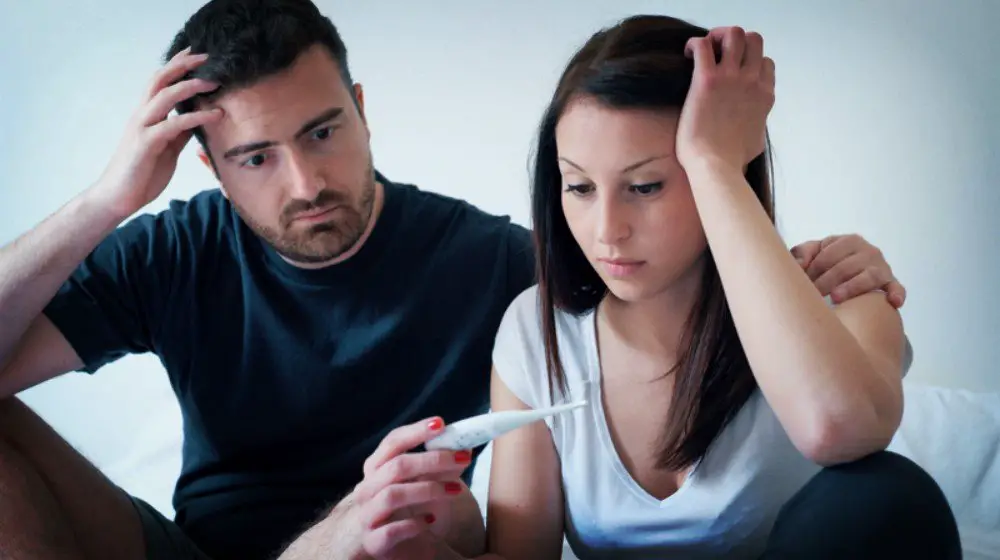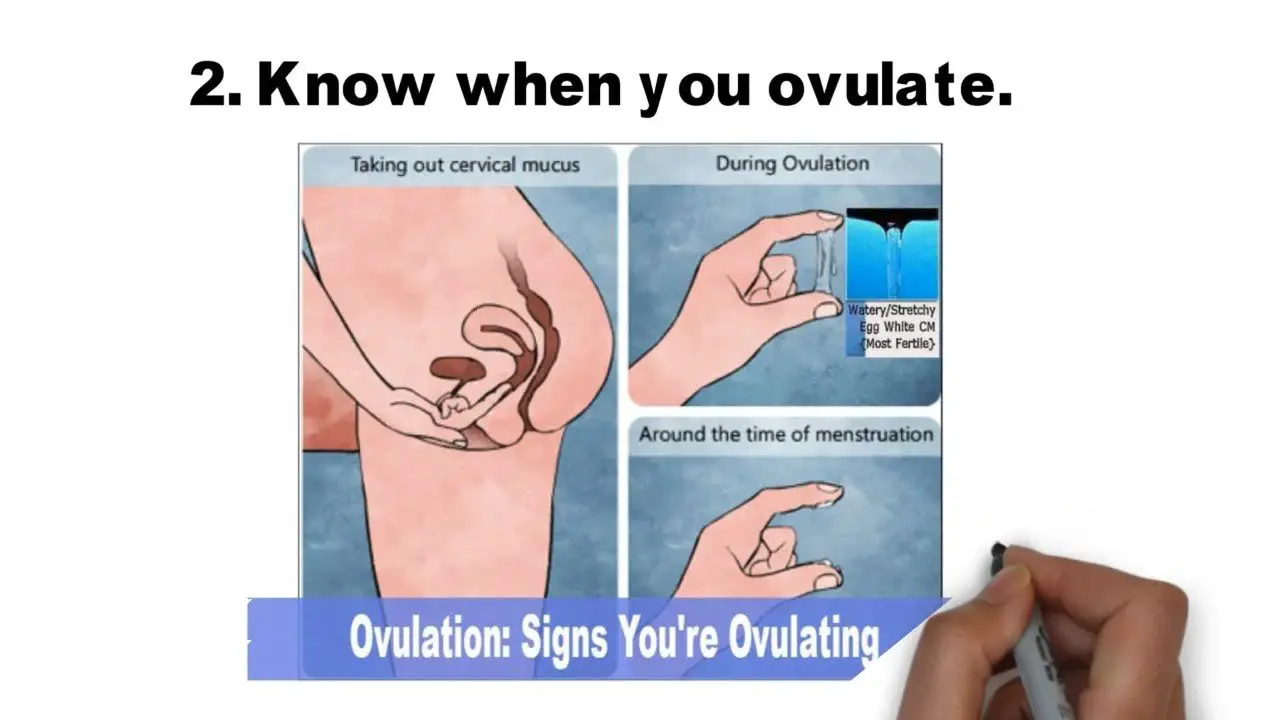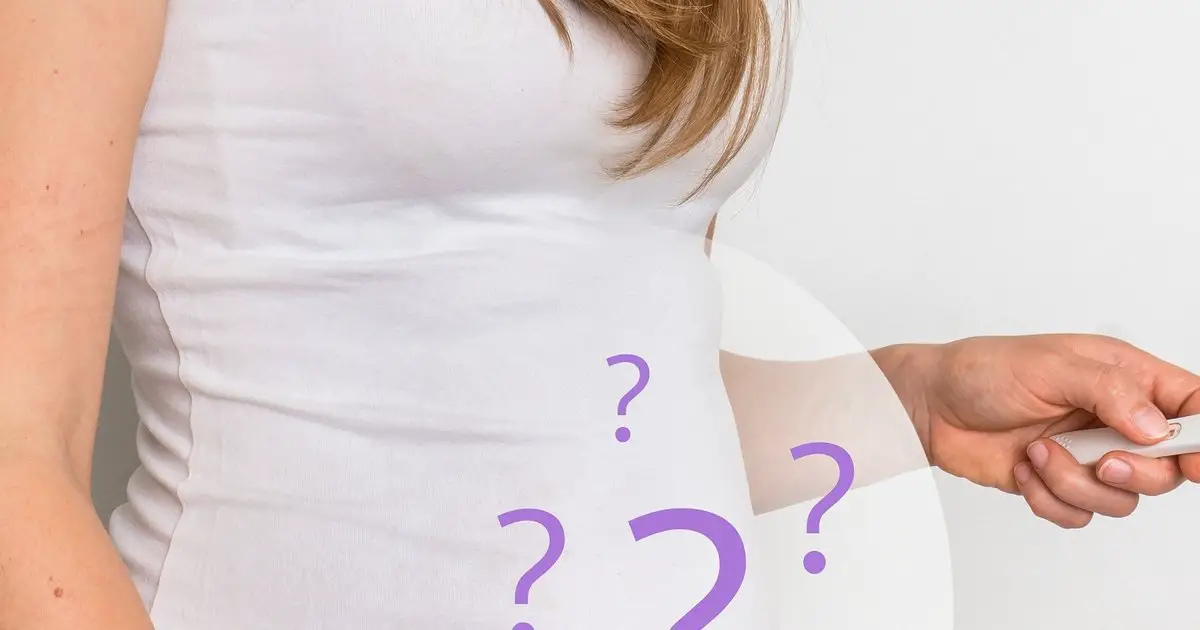Fertility Treatments After 40
Research has shown that assisted reproductive technology is less effective after age 40, and the rate continues to fall as you get older. For example, intrauterine insemination success rates can be as low as 5% for women in their 40s.
In vitro fertilization has slightly better success rates for older peopleabout 15% per cycle. Still, this rate is not as good as it is for younger people.
The percentage of live births per IVF cycle for women over 40 is only 5.8%.
Egg donation may offer the best chance for someone who wants to get pregnant after the age of 40. In this process, a person can become pregnant using a donated egg that has been inseminated with the sperm of their partner or a donor.
The success rates for IVF using a donor egg can be upwards of 35% in cases of diminished ovarian reserve . While the success rates are encouraging, using an egg donor means that the person who becomes pregnant won’t have a genetic connection to their child.
The decision to use an egg donor can be difficult to make. Some people will consider the option and decide it’s not the right choice for them.
The process can also be costly. The price tag may prevent some people from using egg donation services to become pregnant.
How To Track Ovulation
Ovulation typically happens around day 14-16 of your cycle. However, ovulation may happen sooner or later depending on the length of your cycle. The typical cycle lasts 28-30 days but there are those who have cycles that last 24 days and some with 35-day cycles.
The first day of your period marks the start of your cycle, so it’s easiest to track when you’ll ovulate if you have a regular period around the same time each month. However, there are additional steps you can take to know when you’re about to ovulate:
- Track your body temperature. During ovulation, your body temperature will rise by 0.5-1.0 degrees Fahrenheit. Take your temperature each morning before getting out of bed.
- Check your cervical mucus. In the days leading up to ovulation, the vaginal discharge will appear white with a smooth texture. Once you start ovulating, it will turn clear and slippery.
- Try an ovulation predictor kit. These kits are available over the counter and provide urine tests that will measure hormone levels that indicate when you are ovulating.
A person’s fertility window usually opens after menstruation is over. However, you can get pregnant on your period, especially if you have an irregular cycle. That’s why relying on other cues like body temperature and using an ovulation kit can boost your chances of getting pregnant more than just tracking your cycle, alone.
Multiple Factors Contribute To Fertility
People will tell you to attempt conception before the magic age. As weve shown, there is no predetermined number where your fertility will drop. That said, the chance to conceive and carry a healthy baby to term drops as you age, as your partner ages, as you have less viable eggs available, as the chances of miscarriage and stillbirth increase. Its best to attempt conception earlier, but theres no magic formula or age to ensure success.
Read Also: Why Can’t You Donate Plasma While Pregnant
How Long Does It Usually Take To Get Pregnant
It’s impossible to say how long it takes to get pregnant because it’s different for each woman.
Many factors can affect a couple’s chances of conceiving, such as:
- your age
- your reproductive health
- how often you have sex
Some women become pregnant quickly, while others take longer. This may be upsetting, but it’s normal.
Know When To Revisit The Doctor

Youve both been examined, youve been trying, tracking your ovulation closely . . . and nothings happening. How long should you try before you consult the doctor again? For anyone over 32, I would say 4 to 6 months, says Noyes. If youre over 38 and have tried for over 3 months, I recommend you go to the doctor. If youre 40, dont wait at all, but rather go straight to the doctor.
And now, for the hard part: getting your mind right while all of this is happening.
Also Check: Vagisil Cream While Pregnant
Increasing Your Chance Of Falling Pregnant
There are 2 ways you can increase your chances of falling pregnant:
- Calculate when you will ovulate and have unprotected sex 1 or 2 days before that date.
- Make sure both you and your partner improve your health, diet and lifestyle.
An egg can be fertilised for about 12-24 hours after it’s released. You’re most likely to get pregnant if you have sex within a day or so of ovulation.
Try not to get too stressed about falling pregnant. Having unprotected sex every couple of days around the time of ovulation is the best way to make sure there is always a good supply of sperm to fertilise the egg when it’s released.
Many factors can affect your chances of falling pregnant. These include your age and your partner’s age, your lifestyle, your weight, whether either of you has a chronic illness, and how often you have sex.
If you are under 35 and you are not pregnant after a year of having unprotected sex, see your doctor. If you are over 35, it is a good idea to seek help sooner.
Options For Infertile Couples
If you are having fertility issues, your doctor can refer you to a fertility specialist, a doctor who treats infertility. The doctor will need to test both you and your partner to find out what the problem is. Depending on the problem, your doctor might recommend treatment.
- About 9 in 10 cases of infertility are treated with drugs or surgery.
Don’t delay seeing your doctor, as age also affects the success rates of these treatments.
For some couples, adoption or foster care offers a way to share their love with a child and to build a family.
Also Check: Is It Safe To Donate Plasma While Pregnant
What Are The Chances Of Getting Pregnant At 45 Or Older
Your chances of conceiving decrease as you age. It’s natural for you to worry about becoming pregnant when you are past what is considered the fertile and reproductive age, which is below 35 years. The Centers for Disease Control and Prevention says that about 30% of women between ages 40 and 44 have infertility issues.
Getting Pregnant After A Miscarriage
An estimated 10% to 20% of pregnancies end in miscarriage. This most commonly occurs in the first trimester and can be very disheartening, particularly for those who have spent a long time trying to conceive.
However, it does not necessarily mean that it will happen again. Speak to your doctor about how and when to try again if your first pregnancy ends in miscarriage.
Don’t Miss: Vagisil Pregnant
How To Boost Fertility
According to the Centers for Disease Control and Prevention , an estimated 35% of infertility cases are caused by a mix of factors involving both partners. So, if you are having difficulty getting pregnant or you just want to increase your chances of getting pregnant faster, here are some steps that you and your partner can take.
Get To Know Your Cycle
How much do you know about your menstrual cycle? Really understanding helps you know when you’re most fertile, says Hillard.Ovulationis the best time to get pregnant. “This is the time to focus on having sex,” Hillard says.
It helps to become aware of the signs of ovulation, such as a change in your cervical mucus. It usually becomes thin and slippery when you are most fertile. Some women may also feel a one-sided twinge of pain.
Ovulation prediction kits can also help you predict the best time to get pregnant, says James Goldfarb, MD, director of the infertility service at the Cleveland Clinic in Cleveland. Not only can they help assure you that you are ovulating, “if you are having infrequent intercourse, this tells you when to have it to increase your chances of getting pregnant,” he says.
Here’s how it works: The first day of your menstrual period is considered day one. “Start testing on day nine and keep going until you get a positive,” advises Joanne Piscitelli, MD, an associate professor of gynecology at Duke University Medical Center in Durham, N.C. Women with a 28-day cycle tend to ovulate on day 14. But many women have longer or shorter cycles, so casting a wide net can help you be sure.
Continued
Read Also: Vagisil While Pregnant
So Why Do We Think This Is So Easy
Our early days of sex ed set us up with this belief, but pop culture, social media, and the linear view of stories told about conceiving really help solidify this perception as we age. We see celebrities conceive in their 40s without hearing the backstory. Some people are fertile in their 40s, but a lot of women who conceive in their 40s either have embryos they froze from IVF , or the process required a couple of cycles in order to get one normal embryo, Noyes explains. But stars might say, I just rubbed a Buddha belly at 43. No, you went to a fertility doctor.
And while people are entitled to their privacy, keeping these struggles a secret is part of the larger problem, says Nicole Lippman-Barile, PhD, a clinical psychologist and certified nutritional therapist consultant with Northwell Health Physician Partners CBT Practice. Its very narrow to just focus on the success of women who can easily conceive when thats not the majority of womens experiences, she says. Talking about the other realities that exist is the only way we can educate people.
Steinhilber echoes this sentiment. Promoting family planning as something you do earlier than when you are actually ready to have kids could be helpful, so that you sit down with your doctor, get all the facts, and make a more educated decision about when to start trying, how long that process takes on average, what kind of infertility issues you possibly could run up against, and what those mean.
Do I Need Infertility Treatment

If youre having trouble conceiving, an infertility specialist may be able to help. The first step after 12 months of trying to conceive is to schedule an infertility evaluation. This multipart assessment includes:
- Physical examination
- Semen analysis
- Evaluation of the uterus and fallopian tubes
If you or your partner have a known medical condition that affects the uterus, fallopian tubes, sperm or ovulation, talk to your doctor to see if you should be evaluated sooner. For example, if you know that both of your fallopian tubes are blocked, youll need to see an infertility specialist even before trying to get pregnant.
The Johns Hopkins Fertility Center
Our fertility specialists will work with you to identify the unique causes of your infertility and help you realize your dream of parenthood.
Don’t Miss: Chemical Pregnancy Mayo Clinic
Getting Pregnant Can Be Harder Than You Thinkheres Why
Medically reviewed by Neka Miller, PhD on July 15, 2021. To give you technically accurate, evidence-based information, content published on the Everlywell blog is reviewed by credentialed professionals with expertise in medical and bioscience fields.
From a womanâs ovarian reserve to a manâs sperm health, the reasons can vary. Keep reading to learn more about these and other reasons why conceiving may be more difficult than anticipated.
Why Is It So Hard To Get Pregnant Common Causes And How To Handle Them
Now that you understand the process, you might be asking yourself, How hard is it to get pregnant? Depending on the circumstances, sometimes it can be quite hard! There are a number of factors that can work against you if youre trying to get pregnant. Weve outlined some of them here, along with ways to solve them.
You May Like: Sore Breasts After Mirena Removal
Where To Get Help And Support
Although IVF can help some women conceive, Dr Stewart cautions against seeing it as a solution for all: “Some NHS commissioners will allow one cycle of IVF treatment for couples over 40 who haven’t tried it before, but the situation varies. More usually IVF requires several rounds of treatment and is self-funded. You need to have an ovarian egg reserve great enough to produce a number of eggs to ensure a reasonable chance of success in a standard cycle, otherwise theres little point in trying IVF.”
She advises women in their early forties to get a referral to a fertility specialist if they are not pregnant within a year of trying – or earlier if there is an obvious issue – to make sure there are no other contributing factors other than age.
“If those investigations are normal and couples have tried for two years it’s classed as unexplained subfertility, recognising that there are other factors that may not easily be tested for. Sometimes continuing to have intercourse over a prolonged period of time gives a cumulative pregnancy rate that may be greater than what can be achieved through treatment if there is no clear cause.”
Why Does It Get So Much Harder To Conceive Once Youre Over 35
The main reason why your fertility drops by around this age is because you dont have very many eggs left. Women are born with around 1 million eggs, but by the time you reach puberty there are only about 300,000-400,000 remaining. This number gradually drops, and by the time youre 35 there are only a few dozen that could be suitable for fertilization. You could begin to have menstrual cycles where no egg is released.
When youre older, theres also a greater chance that youve had some kind of surgery or infection that could have affected your fertility by leaving scars around the cervix or fallopian tubes. Youre also more likely to have developed conditions such as endometriosis or uterine fibroids, which make it much harder to become pregnant.
As you age, you also experience a natural decline in cervical mucus, which plays a key role in conception by helping sperm through the cervix and into the uterus and fallopian tubes so that it can fertilize the egg.
Once youre over 35, every year can affect your chances of success in becoming a parent, so its important to seek medical assistance as soon as you see that youre having difficulty conceiving. Whether you continue your path to building your family through IVF, donor eggs/sperm, or natural conception, we hope that your experience is as smooth as possible.
Recommended Reading: Is It Safe To Use Vagisil During Pregnancy
Conditions That Affect Fertility
Certain health conditions can play a large role in fertility.
For example,
While it may require beating greater odds if you hope to become pregnant with certain medical conditions, its not impossible. You should speak to your doctorabout a plan of action to improve your chances of getting pregnant and delivering safely.
How Long Does It Take To Get Pregnant At 40
At peak fertility , the chance of a fertile couple conceiving in any one month is about 20-25%. After a year of unprotected intercourse, approximately 85-90% of those couples will conceive. This is why OB/GYNs generally recommend fertility testing for couples under 35 who have not become pregnant in one year of trying. By age 35, the chance of a successful natural pregnancy drops to 10-15% per cycle, and by 40, the chances hover around 5%. This does not mean conceiving after 40 is impossible, just that it will likely take longer. Thats why the recommendation for considering fertility testing after 40 is only 6 months.
You May Like: Does Donating Plasma Affect Fertility
Reasons Why Its So Hard To Get Pregnant In 2021
Sylvia Kang
Katerina Shkodzik
M.D., OB-GYN
When you were growing up, it might have seemed like getting pregnant was as simple as having unprotected sex. Unfortunately, when youre actually ready to get pregnant, you quickly learn that this is not the case. Often, it takes months of trying for couples without fertility issues to conceive and it may take years for those who do struggle with infertility.
12% of women ages 15 to 44 in the United States face difficulty conceiving or carrying a pregnancy to term. This process can be discouraging, especially when you have been trying to conceive for a long time without succeeding. So, why, exactly, is it so hard to get pregnant, even when you dont have underlying health issues?
The complicated answer is that factors like timing, biology, and environment can all interact to make your journey to conception straightforward or more difficult. Whether or not you struggle with infertility, here are some of the reasons why you may find it hard to conceive.
When To Get Help

To reiterate, its always a good idea to see a fertility specialist if you have been TTC for more than one year with no success. You can start by scheduling an appointment with your PCP or OB/GYN, who can refer you to a fertility specialist they trust. A fertility specialist will talk to you and your partner about your health and potentially run more tests to evaluate your fertility and help pinpoint why you have not been able to conceive.
Recommended Reading: Is It Bad To Donate Plasma While Pregnant

